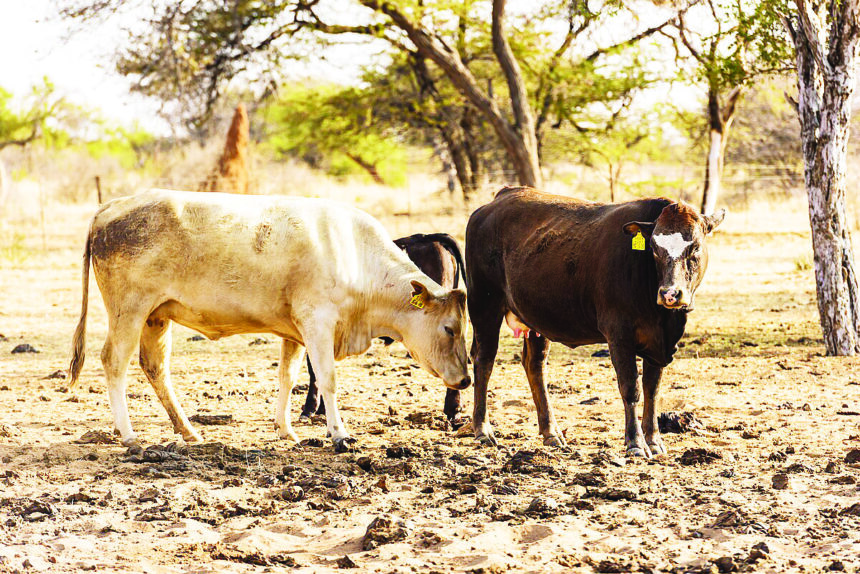OTJIWARONGO – The government, through the ministry of agriculture, continues to strengthen and roll out its livestock support programme, which aims to capacitate farmers and share modern production techniques that are resilient to climate change.
Farmers in the eight regions of the country’s Northern Communal Areas (NCAs), which comprise Zambezi, Kavango East, Kavango West, Oshikoto, Ohangwena, Oshana, Omusati and Kunene regions, are being trained on how to effectively manage their livestock, and how to prevent infectious transboundary diseases.
Livestock marketing, sustainable ways to improve the performance of the livestock value chain in the NCAs, and improving production systems that are resilient to climate change, also form part of the ministry’s ongoing livestock support programme.
The NCAs is home to over 1.6 million cattle and approximately
860 000 sheep and goats. It remains one of the country’s biggest agricultural hubs that sustains thousands of livelihoods through food production and employment creation.
Farmers in the NCAs have ignited a fervent interest in commercially marketing their cattle, signalling a notable surge in auction participation and direct sales to newly-established abattoirs.
The agriculture ministry’s public relations officer, Jona Musheko, shared withAgriToday that the programme started about three years ago, and continues to empower farmers in the NCAs, particularly those operating cooperatives, farmers associations and as individuals.
“It has been running for years now, and it strictly targets those farmers who are in the NCAs, starting from Kunene to the Zambezi region. To ensure a smooth implementation of these activities, it is important that livestock marketing awareness campaigns are undertaken in the NCAs to sensitise farmers and producers. The successful implementation of the project will entirely depend on them buying into this concept,” he said.
The surge in revenue and activities in the NCAs as reported by the Livestock and Livestock Products Board (LLPB) echoes this growing market dynamism, which grew from N$10.6 million in 2019 to an astounding N$33.5 million last year.
The opening of a new abattoir in Rundu last year also bolstered the performance of NCAs’ producers, particularly in the northern central regions.
The LLPB had also reported a notable 9.6% increase in the number of cattle marketed at auctions in 2023, compared to the previous year, engaging 1 387 producers in the process.
This demand is fuelled by the pressing need for slaughter-ready cattle, largely driven by intensified meat vendor/trade activities and cultural norms within the NCAs.
The rise in auction activities since 2019 underscores the burgeoning demand for more events, driven by producers’ growing interest in marketing livestock through this channel.
In essence, the surge in market activity among northern producers heralds a promising era for the NCAs’ livestock industry, underlining their steadfast commitment to meeting market demand and driving economic growth within the region.
-ohembapu@nepc.com.na
Caption: Capacitated… Farmers in the country’s Northern Communal Areas are being fully capacitated through the government’s livestock support programme.
Photo: File


